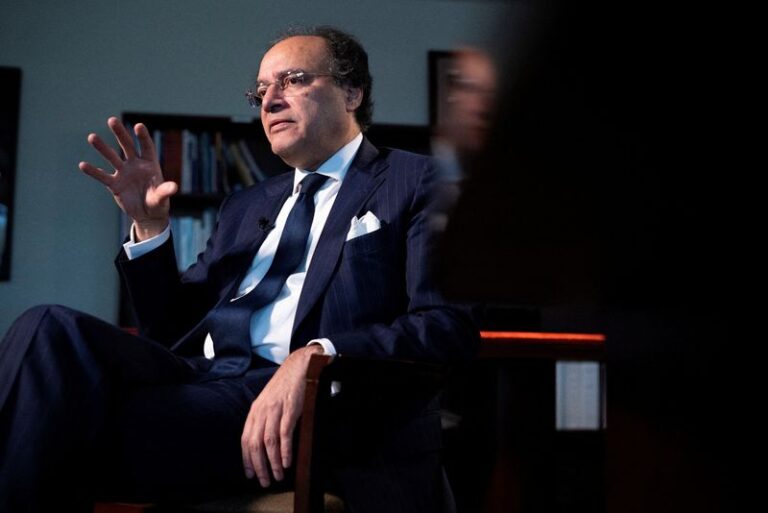(Reuters) – Pakistan is considering raising the retirement age to cut soaring pension payments, Pakistan’s finance minister said on Tuesday, ahead of the annual budget and a visit by an International Monetary Fund (IMF) delegation.
Finance Minister Mohammad Aurangzeb told a press conference that an IMF mission is likely to visit Pakistan within the next 10 days to discuss a new relief program.
Pakistan completed a $3 billion short-term program last month that helped it avoid default on its sovereign debt, but Prime Minister Shehbaz Sharif’s government has stressed the need for a new long-term program.
“We need to take steps to contain pension costs,” the finance minister said, adding that pension payments were a “significant liability”. The retirement age in Pakistan is 60 years.
“Age is now just a number,” Aurangzeb added. “60 is the new 40.”
Justice Minister Azam Nazir Tarar said a committee has been established to propose recommendations on pension reform.
The finance minister emphasized the need to reduce non-development spending.
The unfunded nature of pension liabilities and the growth in pension expenditures are increasingly challenging governments as they prepare their budgets.
Pakistan has budgeted 801 billion rupees ($2.88 billion) in current expenditure for superannuation allowances and pensions in 2023-24, 31% from the previous year’s budget of 609 billion rupees ($2.19 billion). increased.
Pakistan’s fiscal year runs from July to June, and the 2025 budget, the first for the new Sharif government, must be submitted by June 30.
The IMF announced on Sunday that a “mission will visit Pakistan in May to discuss reforms under the FY25 budget, policies and possible new programs for the welfare of all Pakistanis.” .
The IMF and finance minister did not specify the dates of the visit or the scale or duration of the program.
The finance minister added that Islamabad will also discuss climate finance with the IMF.
(1 dollar = 277.9500 Pakistani Rupee)
(Reporting by Aliba Shahid in Karachi; Writing by Sudipto Ganguly; Editing by Y.P. Rajesh and Ed Osmond)

